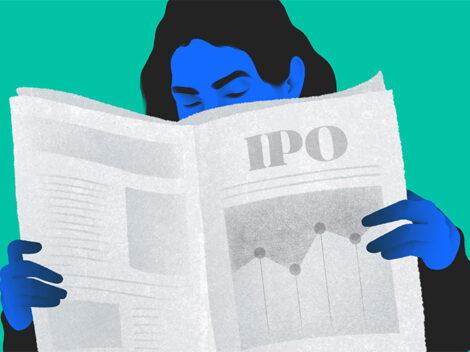For what’s seemed like forever in venture capital, startups and investors have sought an edge by associating themselves with the hot space of the moment.
When Uber was ascendant in the early 2010s, startups habitually touted themselves as “the next Uber” of their field. When e-commerce aggregators were hot last year, it seemed like everyone was doing it. Same holds for autonomous trucking, 3-D printing, “buy now, pay later,” i-buyers. … Wherever you saw a hot trend, you’d find a cluster of well-funded startups.
This strategy worked well when public market investors and acquirers were on board. Companies far from profitability could cash in on their industry’s perceived future-changing potential, as we saw in the early days of the SPAC boom.
Search less. Close more.
Grow your revenue with all-in-one prospecting solutions powered by the leader in private-company data.
But that was then; this is now. The rising tide has long since receded, and the SPAC boom has turned to bust. In today’s market, companies associated with once hot sectors that have fallen out of favor are seeing share prices shellacked pretty much across the board.
So what’s a venture capitalist to do? For 2023, we’re predicting that startup investors will be looking for novelty in the companies they back. Out with the me-too business plans. In with those quirky or differentiated enough to stand on their own.
Defining novelty
This assertion begets the question: What qualifies as novel? In particular, what does novelty mean at the late stage, where business models have presumably been around long enough for others to mimic?
Generally, we’re looking for companies in under-represented sectors that have a significant lead over would-be competitors in technology or gaining market share. It also helps to be the kind of startup that doesn’t remind people of another startup.
Of course, there is some subjectivity involved, and not everyone will agree with our picks. Nonetheless, here are a few that stand out among the largest, late-stage funding recipients:
For a sense of the logic in defining novelty, and the numbers involved, let’s break out some of these listings in more detail:
Anduril: We’ll start with the most heavily funded name on the list, defense tech startup Anduril, which pulled in $1.5 billion early this month in a Series E round that values the company at $8.5 billion. Launched in 2017 by Oculus founder Palmer Luckey, Anduril stands out in the startup field in that defense has historically not been a popular space for venture-backed companies, despite the enormity of spending that goes into the sector.
Bee startups BeeWise and BeeHero: Bee-related startups comprise a growing space, but also a pretty differentiated one. One unique standout is Beewise, an Israel-based company that makes robotic beehives and has raised around $119 million to date. Another is BeeHero, which has raised $66 million to date for its “pollination as a service” offering, adding data science and sensor networks to the old-fashioned business of getting bees to do their thing.
Island: Dallas-based Island has raised a lot of cash, even in this down market. The startup, which develops enterprise browsers it says enhances security and worker productivity, pulled in $275 million over multiple rounds this year, at a last reported valuation of $1.3 billion.
Therabody: Los Angeles-based Therabody, which pulled in $165 million in September, is best known for its massage guns, which it claims can help with physical performance, pain, stress and sleep.
These, of course, are just a few examples. Others on the list are addressing markets that range from mini golf to geothermal home heating to non-alcoholic craft beer.
Maybe novel investing, too
Beyond backing more original-sounding businesses, later-stage investors may also be more likely to consider companies that have done a well-known seed round or have an early-stage VC firm on the term sheet.
Looking at the collapse of FTX and other high-valuation upstarts with famous investors, it’s clear prominent backers are capable of missing major red flags. So why not take a chance on something more “out there” and get in at a lower valuation, to boot?

Stay up to date with recent funding rounds, acquisitions, and more with the Crunchbase Daily.












67.1K Followers